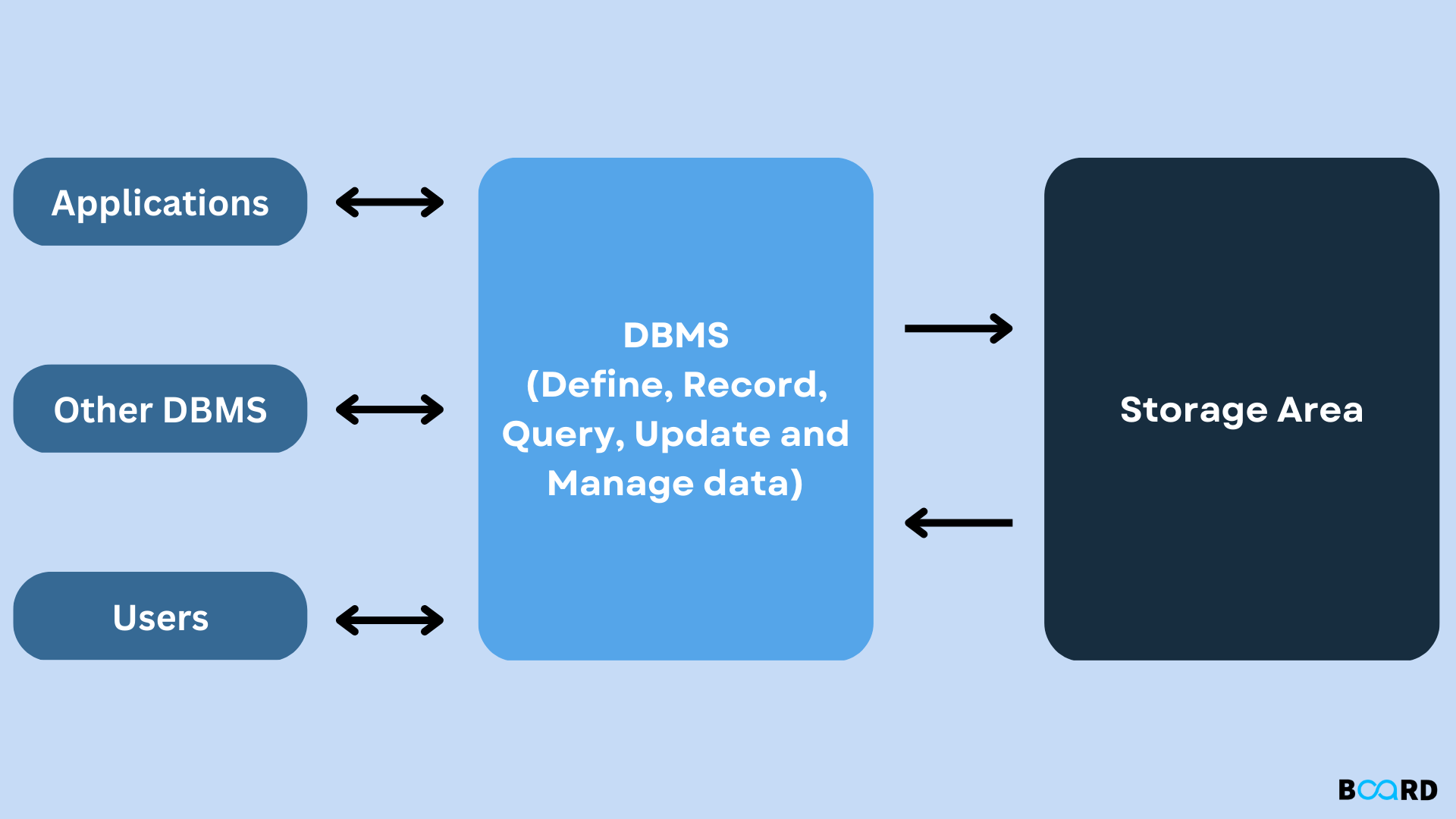Mastering DBMS: Learn Basics to Advanced Technique
Applications of DBMS

Introduction
A software program called a database management system (DBMS) is used to create, access, maintain, and administer databases. It can be installed like any other program, and we may utilize SQL for all database activities we plan to carry out. DBMS can receive incoming data from either an application or manually from a user.
No matter how big or small the DBMS is, we may store data, retrieve it when needed, and make changes whenever we like.
The DBMS contains several preset commands that can alter the database. These instructions serve as a communication channel between the database and end users.
Applications of DBMS
Detailed Explanation
- Reservation system for trains
The information base is required in the rail route reservation framework to store the record or information of ticket appointments, status regarding train appearance, and flight. Additionally, people are informed if trains are running late thanks to the information base update.
- Social media platforms
The necessary information must be filled out in order to access social networking platforms. On social media platforms like Facebook, Pinterest, and Instagram, many users sign up every day. With the use of a DBMS, all user-related data is stored and kept up to date.
- Military
The DBMS is essential in military settings. The military maintains numerous files that need to be kept safe and secure, including records of personnel. Military data is highly secure thanks to DBMS.
- Online Shopping
These days, all of us conduct our shopping online to save time. DBMS facilitates this process. Only with the aid of DBMS, such as Purchase information, invoice bills, and payment, are the products added and sold.
- Finance
These days, there are many things to do with finance, such as managing financial statements, holding information, and storing sales data. Database systems can be used for all of these.
- Human Resource Management
Large businesses or organizations frequently employ a large number of specialists or representatives. With the use of an information base management structure, they keep track of information about worker's compensation, evaluation, and employment (DBMS).
- Airline reservation system
Railroad reservations are made using a system similar to the airline reservation system. The records of flight takeoff, appearance, and defer status are also stored by this framework using an information base administration framework.
- Manufacturing
Manufacturing businesses produce a variety of goods and sell them regularly. The executives use a database management system (DBMS) to store information about their things, such as bills, receipts for purchases, quantities, and inventory.
Summary
We have only mentioned a small number of applications; however, this list will never be complete because DBMS is now used in almost all fields where managing databases is necessary. Only when the amount of data is very small is the traditional file system used.
